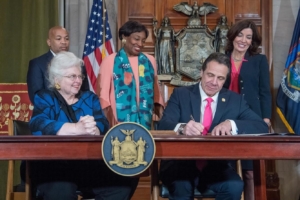The Space Shuttle, Ted Bundy, and Unplanned Pregnancies
Should Women Have an Absolute Right to An Abortion?
 The explosion of the Space Shuttle Challenger followed three previously aborted flight attempts. As a young elementary school student in 1986, we lined up our chairs for the fourth time to watch the Challenger launch. Our teachers, the news, and the entire country had us excited to observe a lesson taught from outer space. NASA, under pressure for the launch to occur, overlooked icicles on the landing pad. This led to the “major malfunction” that caused the Space Shuttle Challenger to explode after takeoff, killing all seven crew members. The explosion left school children bewildered and the nation shocked. A subsequent investigation led to the conclusion that the mission should have, once again, been aborted.
The explosion of the Space Shuttle Challenger followed three previously aborted flight attempts. As a young elementary school student in 1986, we lined up our chairs for the fourth time to watch the Challenger launch. Our teachers, the news, and the entire country had us excited to observe a lesson taught from outer space. NASA, under pressure for the launch to occur, overlooked icicles on the landing pad. This led to the “major malfunction” that caused the Space Shuttle Challenger to explode after takeoff, killing all seven crew members. The explosion left school children bewildered and the nation shocked. A subsequent investigation led to the conclusion that the mission should have, once again, been aborted.
The word “abortion,” while appropriate in relation to the space shuttle, nevertheless has negative connotations in our society. In high school, I had a teacher who refused to use the word abort or abortion for anything, except in reference to a woman choosing to end her pregnancy. She found it offensive and inappropriate. Repeatedly, she stated, “Abortion is wrong because the body is the temple of the Holy Spirit.” Conversely, during my graduate degree, I had a tutor who worked as an attorney. Day after day, he would tell me about visiting his clients in jail, and how badly the place smelled. He also told me about consistent observations he made amongst the prisoners. The most astounding observation included the fact that the majority of the prisoners had been born out of wedlock. As a result, he found illegitimacy to be a serious threat to our society. If one has a child born illegitimately, he would say, one’s major goal in life is to then keep that child out of prison. Abortion, he argued, is for the good of society.
In 1986, the space shuttle took off, because NASA felt pressure to deliver to the children of America the “first teacher in space.” As a result, they killed every astronaut on board. Is it appropriate to compare aborting a space shuttle mission to a woman aborting her pregnancy? Perhaps not, but I am going to do it anyway. Pregnancy occurs because a woman has sex with a man. Sometimes this sex is consensual, and sometimes it is not. Pregnancy often includes the conduction of various genetic tests, determining if the fetus is viable, or suffering from genetic problems. At this time, if either of these problems arise, abortion is the most likely resulting scenario. Continuing with pregnancies that have severe problems can result in catastrophic hospital bills, overwhelming caretaking bills, and even the death of the mother, and/or child. Like the space shuttle that resulted in such cataclysmic devastation, sometimes, one can argue, abortion is the wisest solution to the problem or potential problems that are most likely to occur.
Society often puts pressure on young, unmarried women to continue with their pregnancies. For example, my father has a dear friend who asserts he is pro-choice-before conception. Once one is pregnant, he argues, abortion is not an option. But what about birth defects, I responded? Or if the mother’s life is at risk? No deal, he answered. As a Roman Catholic, he believes, the child’s life is paramount. As a young woman being raised by a feminist woman of the 60’s, this belief system did not sit well with me.
 Can abortion, in cases of rape and/or incest, represent a sensible decision? Ted Bundy, the world’s most notorious serial killer, entered this world likely as the product of just such a scenario. Initially raised as his mother’s brother, he only discovered his true parentage later in life. Shocked by this betrayal, coupled with a devastating breakup, he embarked on a devastating trail of rape and murder. After wreaking havoc on young women across the country, Ted Bundy finally met his end in the electric chair. However, it can be asserted that, had abortion been legal at the time of his conception, many women and their families would have been spared a great deal of torment and pain. What is more moral-society ending a life before it’s birth, or far after, when the person is an adult? Does Ted Bundy represent an example of abortion representing a sensible decision?
Can abortion, in cases of rape and/or incest, represent a sensible decision? Ted Bundy, the world’s most notorious serial killer, entered this world likely as the product of just such a scenario. Initially raised as his mother’s brother, he only discovered his true parentage later in life. Shocked by this betrayal, coupled with a devastating breakup, he embarked on a devastating trail of rape and murder. After wreaking havoc on young women across the country, Ted Bundy finally met his end in the electric chair. However, it can be asserted that, had abortion been legal at the time of his conception, many women and their families would have been spared a great deal of torment and pain. What is more moral-society ending a life before it’s birth, or far after, when the person is an adult? Does Ted Bundy represent an example of abortion representing a sensible decision?
Religion often takes exception to abortion, regardless of the circumstances resulting in the pregnancy. Like my father’s friend, many Christians believe that life begins at conception and that as a result, the fetus, representing the most vulnerable members of society, is entitled to protection by the strongest members of our society. As a result of this belief, I observed many girls in my Christian high school become pregnant and drop out of school. Some of them married the father of the child, and the majority of them divorced. Few, if any, of these women attended college, but all of them underwent the overwhelming struggle of young motherhood. Financially, emotionally, spiritually, these women gave everything they had so that these children could be born and raised. While speaking with them later in life, many of them indicated to me that they felt pressured into having sex, pressured into having the baby, never even contemplated birth control, and routinely encountered boys refusing to wear protection. After the birth, more often than not in a charity ward, the father disappeared, or showed little concern. The woman, in the end, almost always became the primary caretaker to the child.
Does a woman have the right to terminate a pregnancy if she does not feel ready to raise a child? Did the operators of the space shuttle have the right to abort the mission? Today, knowing the result of the space shuttle not being aborted, the result is an astounding yes-the space shuttle launch should have been aborted. The children of Christa Mcauliffe and the rest of the astronauts would have had a parent. Their husbands and wives would have continued to have spouses. Instead, because of pressure and expectations placed upon the operators of the space shuttle, they made bad decisions, and destruction occurred. On the same token, if a woman’s life is at risk by giving birth, and she does not find out until the twenty-eighth week, does she too have the right to abort her pregnancy? Is it worth risking her life so that, potentially, another can be born? What about the risk that her current children will lose their mother, or that her husband will lose his wife? Even more profoundly, should this question be left to our slow-moving judicial system, or to a woman and her doctor?
 Our legal system is attempting to clarify this difficult situation. New York recently passed “the Reproductive Health Act, (in which) non-doctors are now allowed to conduct abortions and the procedure could be done until the mother’s due date if the woman’s health is endangered or if the fetus is not viable. The previous law only allowed abortions after 24 weeks of pregnancy if a woman’s life was at risk.” (1) Responses to this ruling have been comprised of shock and dismay. Children can now be aborted even if they are viable. How could such a ruling have occurred? Is this not murder? How can women have an absolute right to an abortion?
Our legal system is attempting to clarify this difficult situation. New York recently passed “the Reproductive Health Act, (in which) non-doctors are now allowed to conduct abortions and the procedure could be done until the mother’s due date if the woman’s health is endangered or if the fetus is not viable. The previous law only allowed abortions after 24 weeks of pregnancy if a woman’s life was at risk.” (1) Responses to this ruling have been comprised of shock and dismay. Children can now be aborted even if they are viable. How could such a ruling have occurred? Is this not murder? How can women have an absolute right to an abortion?
The Reproductive Health Act is likely a response to people in our government wanting to overturn Roe v. Wade. Many of these individuals want to make abortion illegal in all instances, including rape, incest, and birth defects. This arguably extreme view has now been met with another-the Reproductive Health Act, allowing just the opposite- that is, abortion up until the time the fetus or child takes its first breath. The war is on. Who does society value more-the mother or the child? Who has an absolute right to life-the mother or the child?
As a feminist, I firmly believe that the life of the mother is always paramount. I am consistently and profoundly bothered by cases in which mothers, forgoing cancer treatments so their children could live, often resulting in their deaths, are hailed as heroes. In such cases, a family is left without a daughter, a husband is left without a wife, and a child is left without a parent. I find myself afraid of being in such a situation, where my society states I must stop treatment and die, so my unborn child can live. I often feel that our society does not value women and finds us expendable. This both frightens and saddens me.
There are no easy answers to the abortion question. As a writer and researcher, it is often easier for me to take an external point of view. The reality is, society may fight extraordinarily hard to have unplanned children live, only to ultimately execute them later in the electric chair. We are born to this life, and we learn along the way. Good sense must prevail in all things, and in this matter also. So what are we as a society to do? For now, the judicial system of New York has spoken, but the struggle between what is more important to our society-the absolute right to life for mothers, or the absolute right to life for unborn children is very real and ongoing. Only time will tell, and we may never have a firm and definite answer.



Very thoughtful and thought-provoking, Kat.
I was suggested this blog by my cousin. I’m not sure whether this post is written by him as no one else know such detailed about my trouble. You are incredible! Thanks!